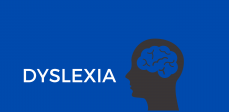January 4, 2023
What does dyslexia mean to me?

As an educational psychologist with 20 years of experience, I have had the opportunity to work with many students who have been diagnosed with dyslexia. Dyslexia is a specific learning disorder that affects a person’s ability to read, write, and spell. It is a neurological disorder that is characterized by difficulty with phonemic awareness, phonology, and/or grapheme-phoneme correspondence, which are all critical skills for reading and spelling.

Dyslexia is a specific learning disorder that affects a person’s ability to read, write, and spell. It is a neurological disorder that is characterized by difficulty with phonemic awareness, phonology, and/or grapheme-phoneme correspondence, which are all critical skills for reading and spelling. Dyslexia is not a measure of intelligence and is not something that an individual can simply “try harder” to overcome. It is a lifelong condition that requires ongoing support and accommodations to help individuals with dyslexia succeed in their academic and professional lives. Dyslexia can manifest as difficulty with decoding words, difficulty with spelling, and difficulty with reading fluency, and may also include symptoms such as reversing letters or confusingly similar words. Dyslexia is a hidden disability, meaning that individuals with dyslexia may not appear to have a disability on the surface, which can lead to misunderstandings and misperceptions about their abilities.
For me, dyslexia represents a unique challenge that requires a multifaceted approach to support and accommodate individuals with this learning difference. It is not a disorder that can be “cured,” but rather it is a lifelong condition that requires ongoing support and accommodations to help individuals with dyslexia succeed in their academic and professional lives.
One of the most common misconceptions about dyslexia is that it is simply a problem with “reversing letters.” While this can be a symptom of dyslexia, it is only one aspect of the disorder. Dyslexia can also manifest as difficulty with decoding words, difficulty with spelling, and difficulty with reading fluency.

To effectively support individuals with dyslexia, it is important to understand the unique challenges that they face and to provide appropriate accommodations and support. This may include the use of assistive technology, such as text-to-speech software or digital text readers, as well as structured literacy interventions, such as the Orton-Gillingham approach.
It is also important to recognize that dyslexia is a hidden disability, meaning that individuals with dyslexia may not appear to have a disability on the surface. This can lead to misunderstandings and misperceptions about the abilities of individuals with dyslexia, which can have negative impacts on their self-esteem and confidence.
For me, dyslexia is a reminder that not all learning differences are visible, and that it is important to be understanding and supportive of individuals with hidden disabilities. It is also a reminder that everyone learns differently, and that it is important to be flexible and adaptable in our approaches to education.
One of the most frustrating aspects of dyslexia for many individuals is the feeling of being “stuck” in their reading and spelling abilities. Dyslexia is a neurological disorder, meaning that it is not something that an individual can simply “try harder” to overcome. This can be especially difficult for children, who may feel like they are not “as smart” as their peers because they are struggling with reading and spelling.
It is important to remember that dyslexia is not a measure of intelligence. In fact, many individuals with dyslexia are highly intelligent and have strengths in other areas, such as creativity, problem-solving, or visual-spatial skills. It is essential that we recognize and celebrate the strengths and talents of individuals with dyslexia, rather than focusing solely on their challenges.
One way to do this is to provide opportunities for individuals with dyslexia to shine in their areas of strength. For example, a child with dyslexia who excels in art or music may benefit from having the opportunity to showcase their talents in those areas. It is also important to provide positive reinforcement and encouragement for their efforts and progress, rather than dwelling on their difficulties with reading and spelling.
In addition to providing support and accommodations, it is also important to advocate for individuals with dyslexia. This may involve working with educators to ensure that appropriate accommodations are in place, or advocating for the use of assistive technology in the classroom. It may also involve educating others about dyslexia and the unique challenges that individuals with this condition face.
As an educational psychologist, I believe that it is my responsibility to be an advocate for all students, including those with dyslexia. By working together and supporting one another, we can create a more inclusive and understanding society that values and celebrates the strengths and talents of individuals with dyslexia.
As an educational psychologist, there are several steps that I would take to help a child with dyslexia:
Assess the child’s specific needs and challenges: It is important to understand the unique challenges that the child with dyslexia is facing in order to provide appropriate support and accommodations. This may involve administering standardized tests or assessments, as well as observing the child in the classroom and gathering input from teachers and parents.
Collaborate with the child’s teachers and other educational professionals: It is important to work closely with the child’s teachers and other educational professionals, such as speech-language pathologists or reading specialists, to develop a comprehensive plan to support the child’s learning. This may include providing accommodations, such as extra time on assignments or the use of assistive technology, or implementing structured literacy interventions, such as the Orton-Gillingham approach.
Encourage and support the child’s strengths and talents: It is important to recognize and celebrate the child’s strengths and talents, rather than focusing solely on their challenges with reading and spelling. Providing opportunities for the child to shine in their areas of strength can help boost their self-esteem and confidence.
Educate the child, their parents, and their teachers about dyslexia: Providing information and resources about dyslexia can help everyone better understand the condition and how to support the child. This may involve sharing information about assistive technology or teaching strategies that can be helpful for the child.
Advocate for the child: It may be necessary to advocate for the child with dyslexia in order to ensure that they are receiving the necessary support and accommodations in the classroom. This may involve working with the school to develop an Individualized Education Plan (IEP) or coordinating with other professionals to provide the necessary support.
It is important to take a multifaceted approach to supporting a child with dyslexia, and to work closely with the child, their parents, and their teachers to ensure that their unique needs are being met.
In conclusion, dyslexia is a unique learning difference that requires a multifaceted approach to support and accommodate individuals with this condition. As an educational psychologist, it is my goal to provide the necessary support and accommodations to help individuals with dyslexia succeed in their academic and professional lives.

